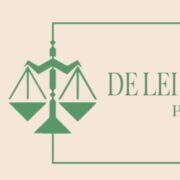Best Citizenship Lawyers in Leiden
Share your needs with us, get contacted by law firms.
Free. Takes 2 min.
List of the best lawyers in Leiden, Netherlands
About Citizenship Law in Leiden, Netherlands
Citizenship law in Leiden, as in the rest of the Netherlands, is regulated by Dutch national law. Citizenship, also known as Dutch nationality, gives people rights and responsibilities, including the right to live and work in the Netherlands, vote in elections, and obtain a Dutch passport. Leiden, a historic city with a diverse population and a significant international community, often sees residents seeking information on how to acquire, retain, or renounce Dutch citizenship. The process usually involves regulations on birth, descent, naturalisation, and sometimes through options specifically designed for certain groups.
Why You May Need a Lawyer
Acquiring or retaining Dutch citizenship can be a complex legal matter. Legal assistance may be valuable in the following situations:
- You wish to apply for Dutch citizenship through naturalisation and need advice on eligibility or documentation.
- You face complications regarding loss or dual nationality.
- Your application has been refused and you wish to appeal the decision.
- You need guidance on citizenship rights for children born in or outside the Netherlands.
- You are considering renouncing your previous nationality to obtain Dutch citizenship.
- You have questions about residence requirements due to frequent travel or temporary stays abroad.
- You are unsure how recent changes in Dutch or EU law affect your case.
A lawyer with expertise in immigration or nationality law can help you avoid costly mistakes and ensure your application or appeal is handled with the best possible chance of success.
Local Laws Overview
Dutch citizenship law is governed by the Netherlands Nationality Act (Rijkswet op het Nederlanderschap). Key aspects relevant to Leiden include:
- Naturalisation Requirements - To qualify for Dutch nationality, most applicants must be at least 18 years old, have lived lawfully in the Netherlands for a specified period (usually five years), hold a permanent or long-term residence permit, and pass a civic integration exam.
- Dual Nationality - The Netherlands restricts dual nationality but allows exceptions. You may need to renounce other nationalities unless you quality for an exemption.
- Citizenship by Birth or Descent - Children born to at least one Dutch parent usually acquire Dutch citizenship automatically, even if born abroad.
- Option Procedure - Under certain conditions, people can opt for Dutch nationality through a simplified procedure, such as former Dutch nationals or spouses of Dutch citizens.
- Loss of Citizenship - Dutch nationality may be lost if you voluntarily obtain another nationality or live outside the Netherlands for an extended period with dual nationality as an adult.
- Appeals - If your application is rejected, you have the right to appeal the decision, which is a process where legal assistance is especially advisable.
Frequently Asked Questions
What are the main ways to acquire Dutch citizenship in Leiden?
The main ways are by birth to a Dutch parent, by descent if the parent is a Dutch national, by naturalisation after living in the Netherlands for several years, or through an option procedure if you meet certain criteria.
How long do I need to live in Leiden to apply for citizenship?
Typically, you need to legally reside in the Netherlands for five years before applying for naturalisation. There are exceptions for some groups, such as spouses of Dutch citizens.
What documents are required for a naturalisation application?
You will need a valid passport, residence permit, birth certificate, proof of legal residence, evidence of income or employment, and a civic integration diploma.
Can I hold dual citizenship as a Dutch national?
Dutch law generally requires you to renounce your other nationalities, but there are exceptions, such as if you are married to a Dutch citizen or if your birth country does not allow renunciation.
Is there a language requirement for Dutch citizenship?
Yes, you must demonstrate sufficient knowledge of Dutch language and society by passing the civic integration exam.
My citizenship application was denied. What can I do?
You can file an objection with the municipality or relevant authority. Legal assistance is recommended, especially for appeal procedures.
How long does the naturalisation process take?
The process usually takes several months from application to decision, often around one year, depending on individual circumstances and document processing times.
Can children become Dutch nationals if born in Leiden to foreign parents?
Children do not automatically become Dutch nationals unless at least one parent is Dutch. However, children may qualify later through an option procedure or naturalisation.
Will I lose my Dutch citizenship if I live abroad?
If you have a second nationality and live outside the Netherlands, the EU, or the Caribbean part of the Kingdom for more than ten years, you may lose Dutch citizenship. Keeping a valid Dutch passport can help maintain your status.
Where do I submit my application in Leiden?
Applications for Dutch citizenship are typically submitted at the City Hall (Stadhuis) in Leiden, often via appointment with the civil affairs department.
Additional Resources
- Gemeente Leiden (Leiden Municipality) - Civil Affairs Office - Handles local citizenship, residency, and naturalisation applications.
- Immigratie- en Naturalisatiedienst (IND) - The main governmental authority on immigration and citizenship matters in the Netherlands.
- Juridisch Loket - Offers free legal advice on citizenship and other legal questions.
- Legal Aid Board (Raad voor Rechtsbijstand) - Provides information and low-cost legal representation for those who qualify.
- Local law firms - Many provide consultations and services in English for international residents.
Next Steps
If you are considering applying for Dutch citizenship in Leiden or are facing issues with your current nationality status, follow these steps:
- Gather all relevant documents, such as passports, birth certificates, and residence permits.
- Contact the Civil Affairs Office at Leiden City Hall to check your eligibility or start your application.
- Consult the IND website or visit their offices for comprehensive information on specific requirements.
- If your case is complicated, or you anticipate any issues, schedule an appointment with a lawyer who specialises in nationality law.
- If you need free initial advice, reach out to the Juridisch Loket.
- For appeals or legal representation, consider applying for legal aid if you meet the eligibility requirements.
- Start your application, ensuring all forms are complete and accurate, and attend required interviews or exams as directed.
Seeking professional legal assistance early in the process can help you avoid delays or rejections and improve your understanding of your rights and obligations as (or as a future) Dutch citizen in Leiden.
Lawzana helps you find the best lawyers and law firms in Leiden through a curated and pre-screened list of qualified legal professionals. Our platform offers rankings and detailed profiles of attorneys and law firms, allowing you to compare based on practice areas, including Citizenship, experience, and client feedback.
Each profile includes a description of the firm's areas of practice, client reviews, team members and partners, year of establishment, spoken languages, office locations, contact information, social media presence, and any published articles or resources. Most firms on our platform speak English and are experienced in both local and international legal matters.
Get a quote from top-rated law firms in Leiden, Netherlands — quickly, securely, and without unnecessary hassle.
Disclaimer:
The information provided on this page is for general informational purposes only and does not constitute legal advice. While we strive to ensure the accuracy and relevance of the content, legal information may change over time, and interpretations of the law can vary. You should always consult with a qualified legal professional for advice specific to your situation.
We disclaim all liability for actions taken or not taken based on the content of this page. If you believe any information is incorrect or outdated, please contact us, and we will review and update it where appropriate.










